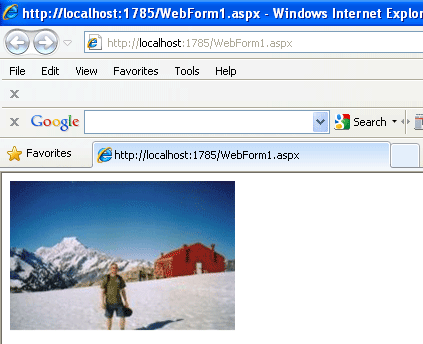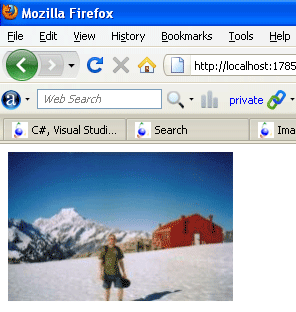Map Tag in HTML5
An image-map is an image with clickable areas. The <map> tag is supported in all major browsers. An image map is one image with multiple "clickable" areas. Attributes consist of a name and a value separated by an equals (=) sign, with the value surrounded by double quotes. This attribute is associated with the <img>'s usemap attribute and creates a relationship between the image and the map.
Image
First of all, you need a suitable graphic. An image that cannot be divided in different sections is not your best choice, but an image that has clear cut-offs or lines would be better. Of course, this does not apply to navigational menus or similar, just to everyday pictures like animals, objects or people.
Co-ordinates
You'll need different co-ordinates depending on what sort of "hot spot" you'd like to use.
Hot Spot
Now that you've got your image and co-ordinates. There are three different shapes (commonly termed "hot spots") that can be used in image maps. They are as follows:
-RECT
-CIRCLE
-POLYGON
Attributes
HTML tags can contain one or more attributes. Attributes are added to a tag to provide the browser with more information about how the tag should appear or behave. Attributes consist of a name and a value separated by an equals (=) sign, with the value surrounded by double quotes.
There are 3 kinds of attributes that you can add to your HTML tags: Element-specific, global, and event handler content attributes.
Element-Specific Attributes
The following table shows the attributes that are specific to this tag/element.
| Attributes Introduced by HTML5 | |
| Attributes | Description |
| name | Assigns a name to the image map. |
Global Attributes
The following attributes are standard across all HTML 5 tags.
|
HTML5 Global Attributes | ||
| accesskey | draggable | style |
| class | hidden | tabindex |
| dir | spellcheck | |
| contenteditable | id | title |
| contextmenu | lang | |
Event Handler Content Attributes
Here are the standard HTML 5 event handler content attributes.
| onabort | onerror* | onmousewheel |
| onblur* | onfocus* | onpause |
| oncanplay | onformchange | onplay |
| oncanplaythrough | onforminput | onplaying |
| onchange | oninput | onprogress |
| onclick | oninvalid | onratechange |
| oncontextmenu | onkeydown | onreadystatechange |
| ondblclick | onkeypress | onscroll |
| ondrag | onkeyup | onseeked |
| ondragend | onload* | onseeking |
| ondragenter | onloadeddata | onselect |
| ondragleave | onloadedmetadata | onshow |
| ondragover | onloadstart | onstalled |
| ondragstart | onmousedown | onsubmit |
| ondrop | onmousemove | onsuspend |
| ondurationchange | onmouseout | ontimeupdate |
| onemptied | onmouseover | onvolumechange |
| onended | onmouseup | onwaiting |
<area> Tag
The HTML <area> tag is used for defining an area in an image map. Image maps are images with clickable areas (sometimes referred to as "hotspots") that usually link to another page.
alt - Alternate text. This specifies text to be used in case the browser/user agent can't render the image.
coords - Specifies the coordinates of the clickable area. Coordinates are specified as follows:
rect: left, top, right, bottom
circle: center-x, center-y, radius
poly: x1, y1, x2, y2, ...
shape - Defines a shape for the clickable area. Possible values:default
rect
circle
poly
href - Specifies the URL of a page or the name of the anchor that the link goes to.
target - Specifies the target frame to load the page into.
For example
<!DOCTYPE html>
<html>
<head>
<title>Image Map</title>
</head>
<body>
<img src ="image1.gif"
width="225" height="151" border="0"
alt="Mueller Hut, Mount Cook, and I"
usemap ="#muellermap" />
<map id ="muellermap"
name="muellermap">
<area shape ="rect" coords ="90,80,120,151"
href ="http://c-sharpcorner.com;"
alt="Me" />
<area shape ="poly" coords ="55,55,120,80,90,80,90,100,70,100,20,80,55,55"
href ="http://vbdotnetheaven.com" target="_blank"
alt="Mount Cook" />
<area shape ="poly" coords ="145,80,145,100,215,90,215,80,180,60,145,80"
href ="http://dbtalks.com" target="_blank"
alt="Mueller Hut" />
</map>
</body>
</html>
Internet Explorer

Figure1
Now move the mouse over the image and click on a different area of the image. Now click on the men area.

Figure2
Fire Fox

Figure3